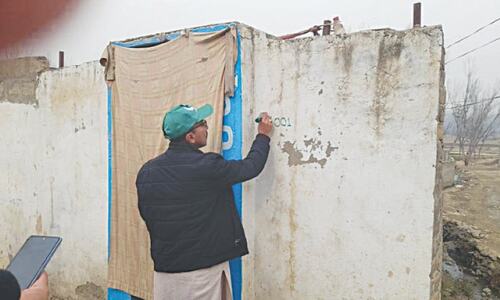WASHINGTON, April 27: Pakistan and Afghanistan enjoy a pivotal role in US policies which also envisage India playing a key role in the region.
“Everybody (benefits) from India with a potential new source of energy and a place to export to, to Pakistan, which becomes a logical port and hub for a lot of this trade,” says US Assistant Secretary of State Richard Boucher.
“Afghanistan, which becomes a transit point and contributor to the trade, or Central Asia which in addition to their ties to Russia, China, and Europe gets to open up another set of export routes and avenues,” he added.
But a transcript titled “The year ahead in South and Central Asia” released at the weekend, acknowledges that this goal cannot be achieved unless there’s stability in both Afghanistan in Pakistan.
Interestingly, there is no mention of Iran, an oil-rich country with borders and influence in both South and Central Asia.
Mr Boucher, however, does talk about a US suggestion to Indian leaders that they should ask Iranian President Mahmoud Ahmadinejad to abandon Iran’s nuclear programme when he visits New Delhi on Tuesday.
Mr Boucher also failed to mention the Iran-Pakistan-India gas project Mr Ahmadinejad hopes to finalise during his visit.
The US opposes any major investment in an Iranian project.
Instead, Mr Boucher underlined US efforts to link Central and South Asia through Afghanistan. He pointed out that the US, Japan, China, the Asian Development Bank and others were building roads between Central and South Asia, including one that links the Kazakh city of Almaty to Karachi.
“That’s new. That’s different. That’s good. And that’s an opportunity,” he said. The US, he said, was working with Tajikistan, Uzbekistan and Turkmenistan to develop electricity lines for Afghanistan and with Tajikistan to help bring electricity to Pakistan.














































Dear visitor, the comments section is undergoing an overhaul and will return soon.